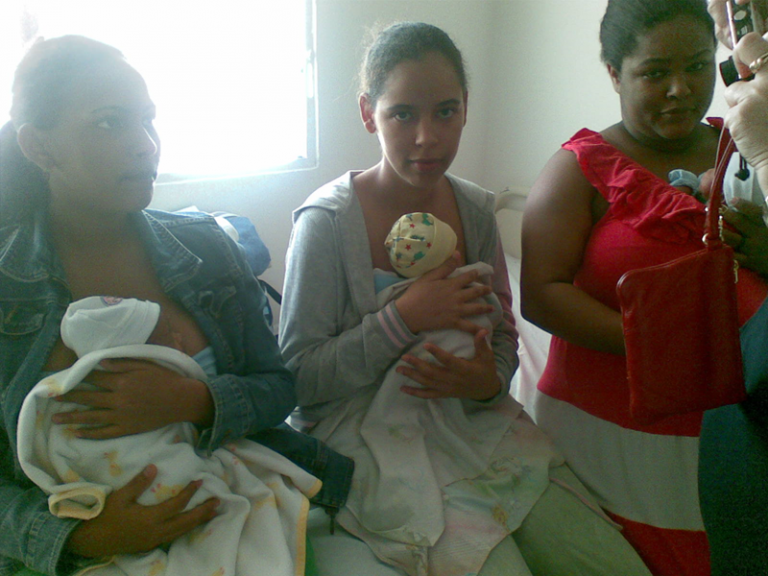Today we celebrate the International Kangaroo Mother Care Awareness Day to promote this life saving, technically feasible and cost effective intervention for low birthweight and premature babies. Below, Goldy Mazia, Senior Newborn Health Advisor for Save the Children reflects on her experience with Kangaroo Mother Care (KMC) in the Dominican Republic.
A decade ago, I was visiting a Kangaroo Mother Care (KMC) program recently implemented in the Dominican Republic in one of the country’s regional hospitals. I entered the KMC follow-up room, and saw a mother holding her 6 month old, beautiful and well- developed baby girl, and she had a huge smile on her face. I learned that her baby had been one of the first KMC cases in the hospital and that she loved every minute of the experience, particularly being empowered to care for her small newborn, who had fewer chances to survive otherwise; she added that she had been able to exclusively breastfeed her baby ever since. She expressed how she wanted, “to have another baby that she could put here” – gesturing towards her chest – and how much she missed that feeling. She also said that her husband used to fight with her for the right to keep his baby in skin-to-skin, and that she “had the baby on her chest more than him, which is not fair.” There were other women with their babies, waiting to be seen by the doctor and nurse, who just smiled and said they felt the same way.
Before the implementation of the program in the country, stakeholders expressed skepticism, citing many potential barriers such as resistance from health workers, particularly academics and high level of care practitioners, development partners, and civil society members, in particular due to the “machismo” culture, where men would never help their partners with the care of a baby.
Our first surprise was how receptive women and their partners were to the program. This, in part, was accomplished by the great work done by a few champions (doctors and nurses) that truly believed in the empowerment of families to care for their own fragile babies, after being trained in an established KMC program. The passion and support of the hospital authorities played a very important role as well. As the numbers and stories collected throughout the first few months of the program, they began to get the attention of other care providers, even the central referral facilities, which had no hesitation in being trained at a peripheral location, after seeing their success! Other factors that contributed to the success of this first KMC program in the Dominican Republic had to do with a strong network of community volunteers that helped raise funds to further supply the needs of the KMC. The center also capitalized on the power of the women and families who were very satisfied with this modality of care, and were their best advocates to increase demand.
Today, the Dominican KMC program is in nine centers, in various stages of implementation, and will be included in the Ministry of Health norms as the preferred care for small babies across the country. So, the Dominican Republic program taught us that it takes some resources, time, dedication, passion, use of data, political will, strong family-centered involvement, and accessible follow-up services, to scale-up KMC nationally..
Learn more about Kangaroo Mother Care by viewing the KMC Implementation Guide and KMC Toolkit.
